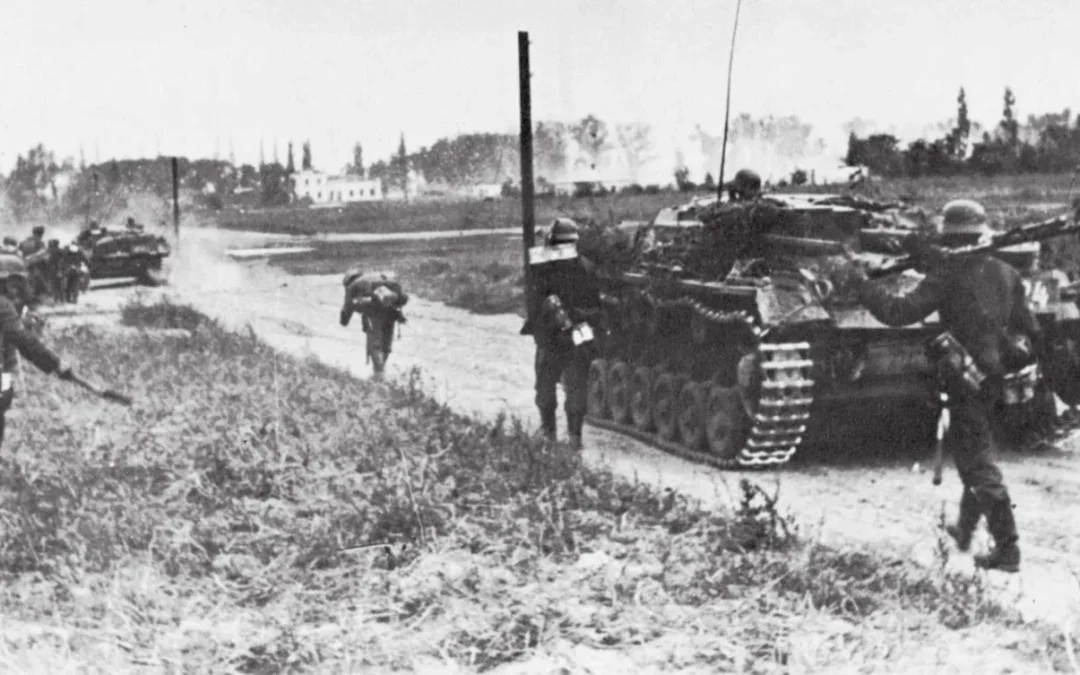Forgotten Champions of World War II
In the Second World War, millions of people risked their lives to fight for a cause they believed was right. When you think of heroic figures of World War II, who springs to mind? Douglas MacArthur? Winston Churchill? Perhaps you think more of the soldier heroes of World War II, like Audie Murphy or Jack Churchill. Here, we would like to turn our focus on some of the more unknown people who were important in the outcome of the war the Unsung Heroes of WWII.
Resistance Fighters
As the Nazis swept across Europe, resistance fighters bravely stood in their way. Some were quite young, like the Edelweiss Pirates who sabotaged Nazi efforts in Germany, or Freddie and Truus Oversteegen, teenaged sisters who seduced Nazi soldiers and lured them to their deaths, Zinaida Portnova, who poisoned a German garrison, or Marcel Pinte, who at six years old carried messages for the French Resistance. Some quietly did amazing work, like Georg Duckwitz, who worked in administration for the Nazi party and informed the Danish resistance of plans to send Jews to concentration camps. As a result of his action, 99 percent of the Jewish population in Denmark was evacuated to Sweden.
Medics and Corpsmen
During World War II, medics and corpsmen provided life-saving medical care on the front lines, often under fire. Often, their stories are buried under tales of the heroism of the troops, but in fact, the medics faced equal peril in many cases. Medics on the front lines were tasked with stabilizing the wounded, preparing them for evacuation to field hospitals or medical centres. They worked to stop bleeding, apply dressings, administer morphine, sprinkle sulfa powder as an antiseptic, leaving more elaborate medical treatment to those in the rear. Medics were supposed to be protected by the red crosses on their armbands and helmets, but that was not always respected. In some cases, like D-Day, evacuation of the wounded was almost impossible. In the Normandy Invasion, most of the wounded on the beaches had to be brought forward, into fire, because there was no way to carry them back to the fleet. According to historian Stephen Ambrose, whenever he heard a veteran call another soldier “the bravest man I ever met”, the soldier in question was typically a medic.
Codebreakers and Cryptographers
Not every WW2 hero was on the front lines. Cryptographers and codebreakers, working as individuals and teams, gathered intelligence and helped to decipher enemy codes, intercepting crucial communications and playing a significant role in Allied victories. When the Allies successfully decrypted the German “Enigma” Cipher, it was probably the most significant codebreaking event of the war. It was a joint effort, with the Polish Cipher Bureau accomplishing the first break, passing their information on to the French and British Allies, at which point British efforts at Bletchley Park substantially improved the decryption techniques, allowing the Allies to gain valuable military intelligence. One of the Bletchley Park operators was a woman named Margaret Betts, who passed away in late 2023, at the age of 99. Her family says she always downplayed the work she did, saying she simply operated machines, obeyed orders, applied logic, and did what she was told, efficiently and intelligently. Her son points out that, while she played only a small role, her work was important. Without the codebreakers, the war may have lasted an additional two years or more.
Partisans/Guerrillas:
Partisans were guerrilla fighters, and during World War II, partisan resistance movements were extensive. They had different names in different areas: the French Maquis, Italian Partisans, Belgian Underground, Russian Guerrillas, Philippine Guerrillas, guerilla forces of the Chinese communists and the Chinese National government, and the German Werewolf, to name a few. There were many Jewish resistance units, in several different countries, and Jews joined general French, Yugoslav, Greek, Soviet, and Italian resistance organizations as well, willing to fight against the Germans against overwhelming odds. Notably, the Bielski Brigade, in western Belarus, operated between 1942 and 1944 and provided a safe haven for Jewish women and children.
Humanitarian Workers
The contribution made by humanitarian workers and volunteers in providing aid and assistance to civilians affected by the war cannot be overstated. Organisations like the Red Cross, Oxfam, and CARE had to deal with the logistics of providing humanitarian across five continents, and that required a vast network of volunteers and workers. In addition to providing food, supplies, and aid to people suffering the effects of war, humanitarian workers in World War II worked in the underground, helping people, especially Jews, go into hiding to escape deportation.
Recognizing All Who Served
The heroes of World War II come in many forms, from resistance fighters and medics to codebreakers and humanitarian workers. While their names may not be as well-known as those of famous generals, their courage, sacrifice, and resilience played a crucial role in the Allied victory and deserve to be remembered and honoured. Dedicated to preserving understanding of WW2 and honouring all those who served, Eden Camp Modern History Museum has been working for over 30 years to bring history out of dull exhibits in stuffy museums and into real life. At Eden Camp, our realistic tableaux, with moving figures and sounds and smells that are authentically historical, will transport you back in time, where you can experience life in Britain from 1939-1945. Once a prisoner of war camp, Eden Camp has been re-equipped to tell the story of the “People’s War”, with each hut covering a different aspect of the war. Our collection is ever growing, and our Heritage Exhibition Hall can be used for special events, occasions, and exhibitions. With immersive displays, we cover both social and military history, and our archive has become a resource of national historical importance. Come visit, on your own, with your family, or with a group- there is something here for everyone. Car and coach parking is free on site, our exhibits are wheelchair accessible, we have picnic areas and play areas, and we’re even dog friendly! For visitor enquiries, group bookings, and school visits, telephone (01653) 915214, or purchase tickets online.


